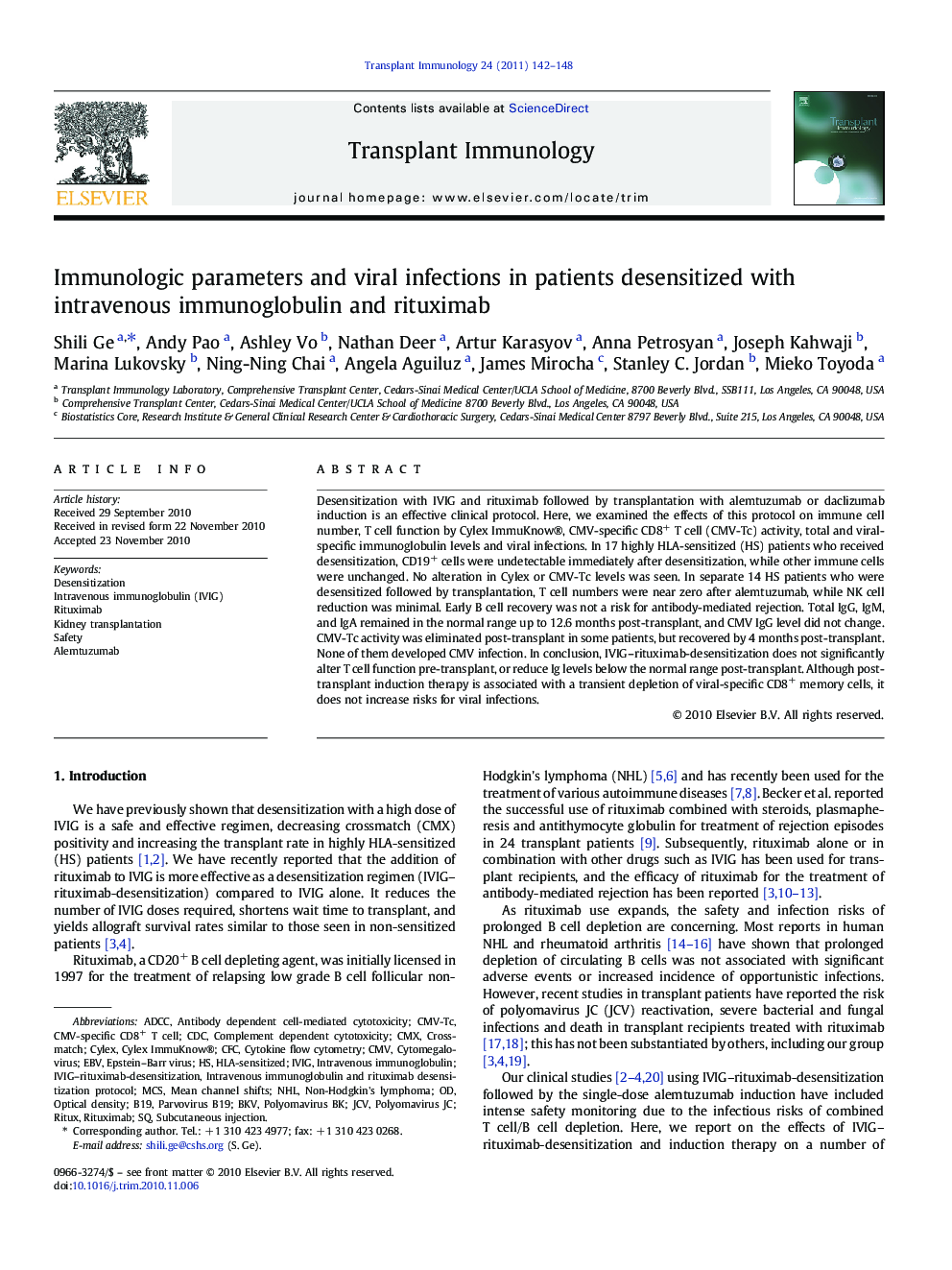| Article ID | Journal | Published Year | Pages | File Type |
|---|---|---|---|---|
| 3392200 | Transplant Immunology | 2011 | 7 Pages |
Desensitization with IVIG and rituximab followed by transplantation with alemtuzumab or daclizumab induction is an effective clinical protocol. Here, we examined the effects of this protocol on immune cell number, T cell function by Cylex ImmuKnow®, CMV-specific CD8+ T cell (CMV-Tc) activity, total and viral-specific immunoglobulin levels and viral infections. In 17 highly HLA-sensitized (HS) patients who received desensitization, CD19+ cells were undetectable immediately after desensitization, while other immune cells were unchanged. No alteration in Cylex or CMV-Tc levels was seen. In separate 14 HS patients who were desensitized followed by transplantation, T cell numbers were near zero after alemtuzumab, while NK cell reduction was minimal. Early B cell recovery was not a risk for antibody-mediated rejection. Total IgG, IgM, and IgA remained in the normal range up to 12.6 months post-transplant, and CMV IgG level did not change. CMV-Tc activity was eliminated post-transplant in some patients, but recovered by 4 months post-transplant. None of them developed CMV infection. In conclusion, IVIG–rituximab-desensitization does not significantly alter T cell function pre-transplant, or reduce Ig levels below the normal range post-transplant. Although post-transplant induction therapy is associated with a transient depletion of viral-specific CD8+ memory cells, it does not increase risks for viral infections.
